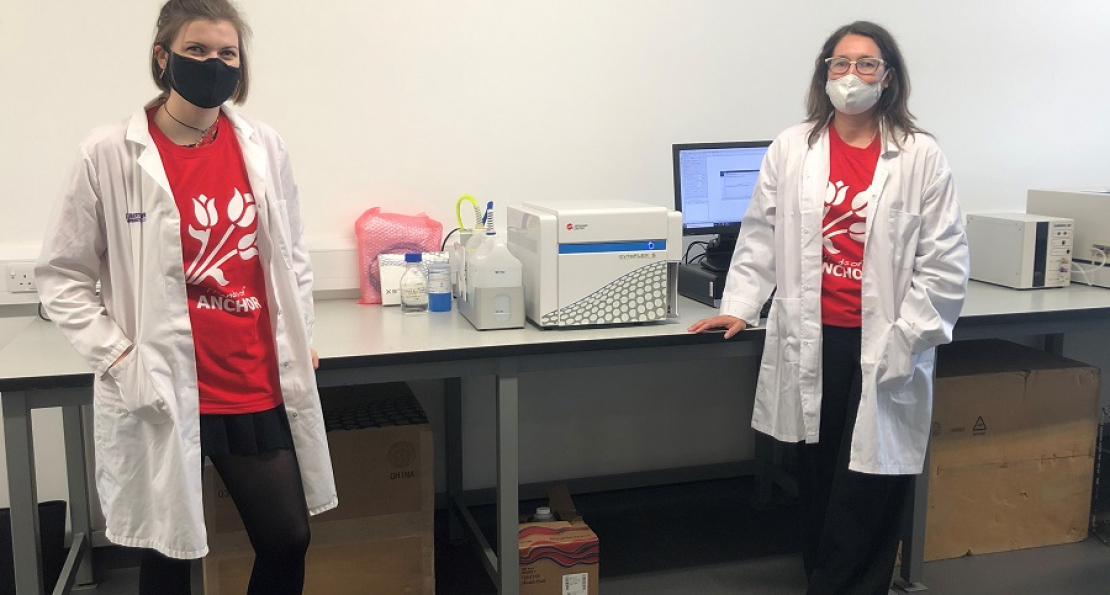Friends of ANCHOR has bolstered a grant from Robert Gordon University to provide top-of-the-range equipment that will drive forward pivotal studies into cancer treatment.
The charity topped up the University’s £39k budget for a new flow cytometer, investing a further £23,737 to allow a higher-spec version to be purchased.
At an overall cost of more than £62,000, the vital tool is now in place in the School of Pharmacy and Life Sciences at the city’s Garthdee campus, where it will take translational research into cancer and haematology diseases to the next level.
Lead researchers, Dr Marie Goua and Dr Giovanna Bermano, who are both based within the University, approached Friends of ANCHOR for the additional funding to purchase the enhanced model, which is renowned for aiding cancer studies.
Dr Goua, Academic Strategic Lead for Biological Science, works at Robert Gordon University, where the equipment is now in use. She said: “This instrument is enabling scientists within the University to further cancer research by gaining a better understanding of how novel drugs and nutrients can affect cancer treatment and prevention.
“It will greatly benefit the training of the next generation of applied biomedical scientists on cancer diagnostics, blood analysis and haematology, which is fantastic news for future research and brings real longevity to the investment.”
A standard flow cytometer uses complex technology to detect and measure the chemical and physical characteristics of cells or particles. The upgraded equipment, now in place thanks to the additional funding from Friends of ANCHOR, has an added extra – it has a violet side scatter function, meaning it uses violet light to examine microscopic nanoparticles.
Dr Goua added: “This is an area which holds great promise for researchers. Nanoparticle drugs have been shown to improve the performance of existing chemotherapy drugs, but crucially, they can also alter the biology of certain other, more potent drugs, allowing them to be safely and effectively administered when they would otherwise be toxic to patients in their normal form.”
Charity director Sarah-Jane Hogg added: “We’re so pleased to have facilitated this exciting upgrade for such a specialised piece of kit, which is a tried and tested tool in the field of oncology and haematology research and will really help to strengthen the position of our PhD researchers locally.
“Research is one of our four core funding areas and this latest investment will help to kick things up a gear and take studies to the next level, benefitting both current and future research right here in the North-east.”
As well as playing a part in cancer and haematology studies here in the city, the flow cytometer will link into collaborative research being carried by University teams in the city and researchers in the University of East Anglia, Northumbria University, and further afield in the University of Milan, University of Basilicata [Italy], University of Granada [Spain], University of Linköping [Sweden], benefitting PhD-level research into neurodegenerative diseases, obesity and related disorders, and other conditions.


